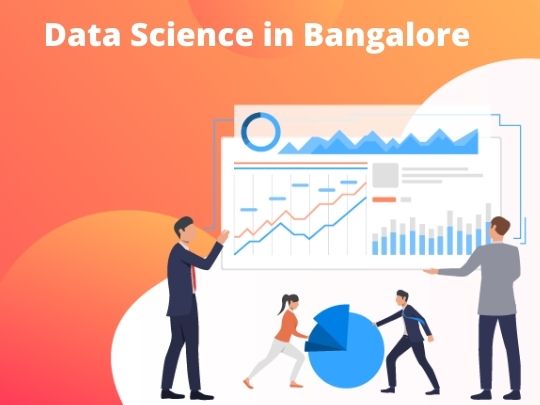Huge Data Science And Discrimination

Machine Learning, AI, and Data Science based mostly predictive instruments are being more and more utilized in problems that may have a drastic influence on people's lives in coverage areas such as criminal justice, schooling, public health, workforce improvement, and social providers. Recent work has raised considerations on the risk of unintended bias in these fashions, affecting individuals from certain teams unfairly.
In this context, some authors stressed the fact that the aforementioned algorithmic mechanisms would possibly result in involuntary and unintentional discrimination. Some other research instead highlighted that knowledge mining applied sciences could end in direct and voluntary discrimination. Here we comply with the aforementioned definition of direct discrimination offered by that describes it as discrimination against minorities or disadvantaged teams on the idea of sensitive discriminatory attributes related to group membership similar to race, gender, or sexual orientation.
As more reviews from the press are rising on the optimistic use of information applied sciences to help vulnerable groups, future analysis ought to concentrate on the diffusion of similar helpful functions. However, since even such practices are creating new forms of disparity between those that can access digital applied sciences and folks who don't, research should also focus extra on the implementation of practical methods to mitigate the Digital Divide. Decisions based mostly on algorithmic, machine studying models could be unfair, reproducing biases in historical information used to train them. While computational techniques are rising to deal with features of these considerations by way of communities such as discrimination-aware data mining and equity, accountability, and transparency machine studying, their sensible implementation faces real-world challenges. For legal, institutional, or commercial reasons, organizations might not hold the info on delicate attributes corresponding to gender, ethnicity, sexuality, or disability needed to diagnose and mitigate emergent oblique discrimination-by-proxy, such as redlining. Such organizations may also lack the data and capacity to establish and handle fairness issues which are emergent properties of advanced socio-technical methods.
Check out for Data Science in Bangalore
Moreover, for the reason that majority of papers centered on the unfavorable discriminative consequences of Big Data, more research is needed on the potential constructive makes use of Big Data with regards to the social disparity. First, regulated companies should clearly document all of the methods they've attempted to attenuate - and due to this fact to measure - disparate impressions of their fashions. We argue that comparability of non-discriminatory classifiers must account for various rates of positive predictions, otherwise conclusions about performance may be deceptive because of accuracy and discrimination of naive baselines on the same dataset range with different charges of optimistic predictions. We provide methodological recommendations for sound comparability of non-discriminatory classifiers, and current a brief theoretical and empirical evaluation of tradeoffs between accuracy and non-discrimination. The use of information analytics in organizations has raised a number of moral considerations together with discrimination.
Visit Data Science in Bangalore
Indeed, ethical concerns with black-box models arise from their tendency to unintentionally create unfair choices by contemplating sensitive elements such as the individual's race, age, or gender. Unfortunately, such unfair selections can provide rise to discriminatory points, both by explicitly contemplating delicate attributes or implicitly by using factors that correlate with delicate data.
While a lot of bias metrics and equity definitions have been proposed, there isn't a consensus on which definitions and metrics must be utilized in apply to evaluate and audit these methods. Further, there has been very little empirical work accomplished on using and evaluating these measures on real-world issues, especially in public coverage. In the context of civil rights regulation, discrimination refers to unfair or unequal therapy of people primarily based on membership to a class or a minority, without regard to individual benefit. Rules extracted from databases by information mining methods, similar to classification or association guidelines, when used for determination duties such as profit or credit score approval, maybe discriminatory within the above sense.
Over time, the creators of algorithms may actively solicit feedback from a wide range of data topics and then take steps to educate the public on how algorithms work to help in this effort. Public agencies that regulate bias can even work to boost algorithmic literacy as part of their missions. In both the public and private sector, those who stand to lose essentially the most from biased decision-making also can play an energetic function in spotting it. Given the increased use of algorithms in lots of elements of day-by-day life, all potential subjects of automated decisions would benefit from data on how these techniques perform.
The greatest method to take action is by making certain the AI just isn't uncovered to inputs that may instantly indicate protected class similar to race or gender. Algorithmic bias can be introduced in numerous ways corresponding to gender bias, racial bias, demographic bias, and so on. Usually, bias could be seen in minority teams as nicely as groups that aren't properly represented within the data that's getting used to training machine learning models. Bias in machine studying corresponds to errors in the assumptions made from ingested knowledge. To be clear, bias can't completely disappear as algorithms are created by humans and from a particular set of information.
With the technology at our disposal today, we are trusting computers to do more and more everyday things for us. While some may be skeptical, there isn't something as such mistaken with this because the more knowledge we generate, the more exact the algorithms powering these computers will turn into. With the persistent gaps between analysis and practice in healthcare systems, information translation has gained significance and importance.
Click here to know more about Data Science Certification Courses in Bangalore
Navigate to:
360DigiTMG - Data Science, Data Scientist Course Training in Bangalore
No 23, 2nd Floor, 9th Main Rd, 22nd Cross Rd, 7th Sector, HSR Layout, Bengaluru, Karnataka 560102
1800212654321
Visit on map: Data Science in Bangalore